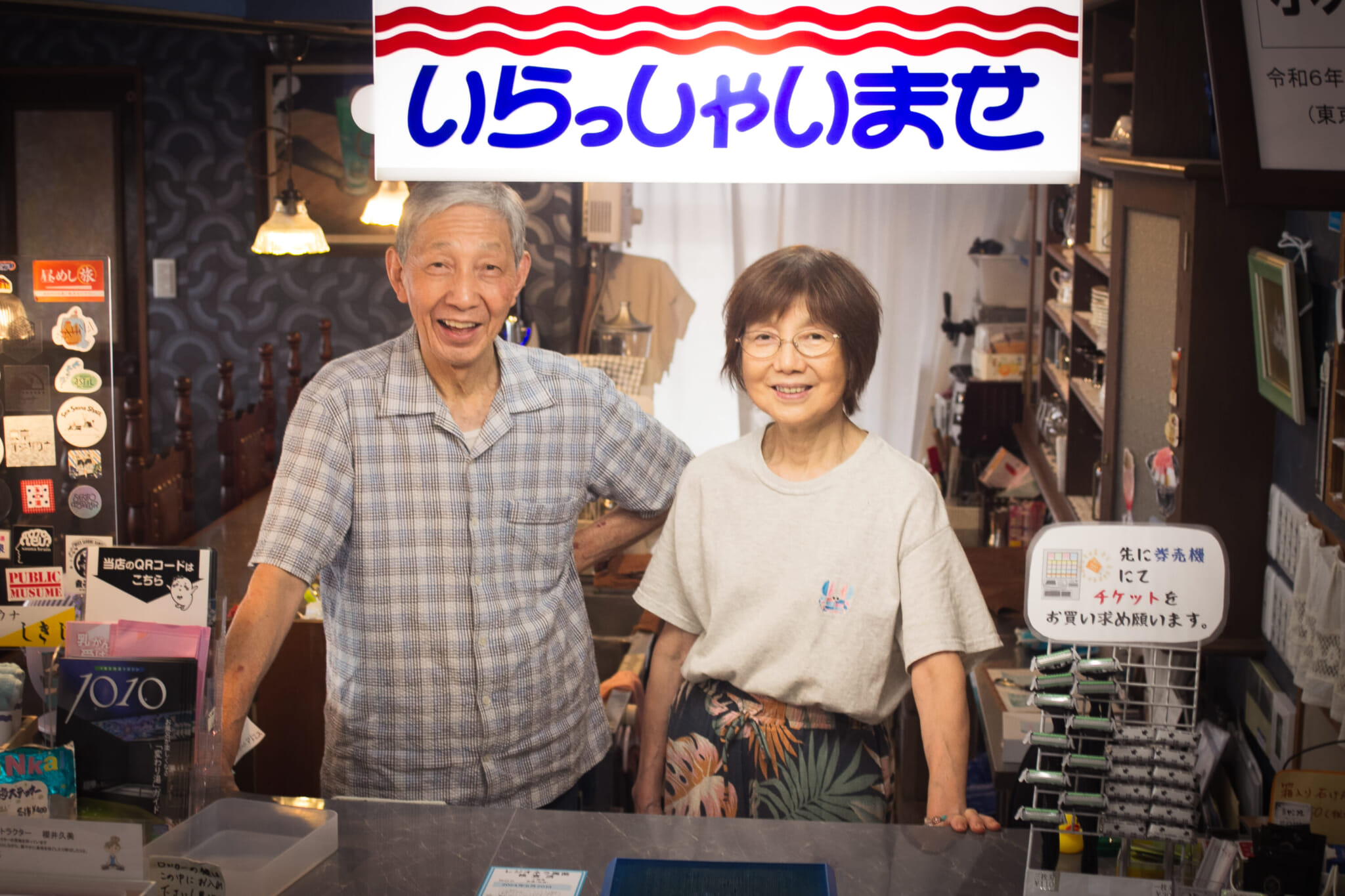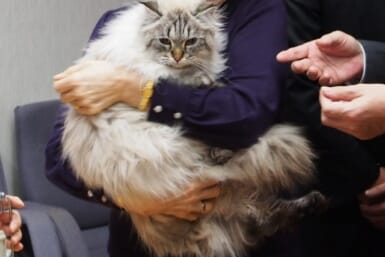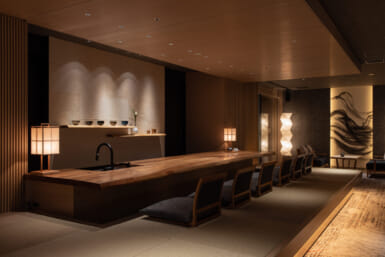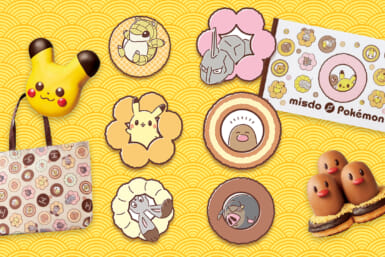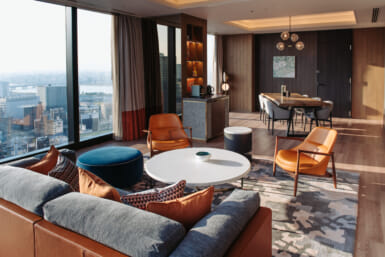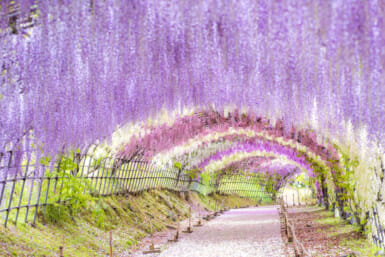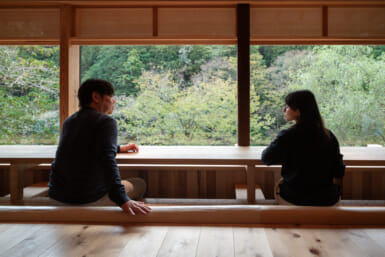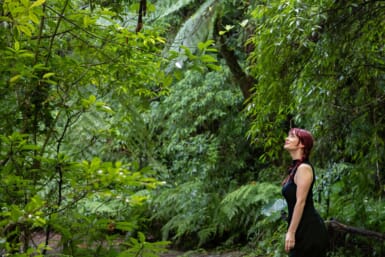Arriving at Jujo-yu, which at first glance may appear to be an unassuming sento (bathhouse) in Tokyo’s Jujo ward, you’ll be greeted with an extraordinary sight. After taking off your shoes, locking them into the shoe lockers and, taking the key, the doors will magically slide open to reveal a bathhouse… and a fully functioning kissaten.
Muneharu Yokoyama (77) and his wife Akiko Yokoyama (74), have run Jujo-yu for over 50 years. Thanks to their tireless efforts to keep it open, over the past five decades the space has become a pillar of its local community, offering a relaxing place to bathe as well as a fine space to sit down and chill out.
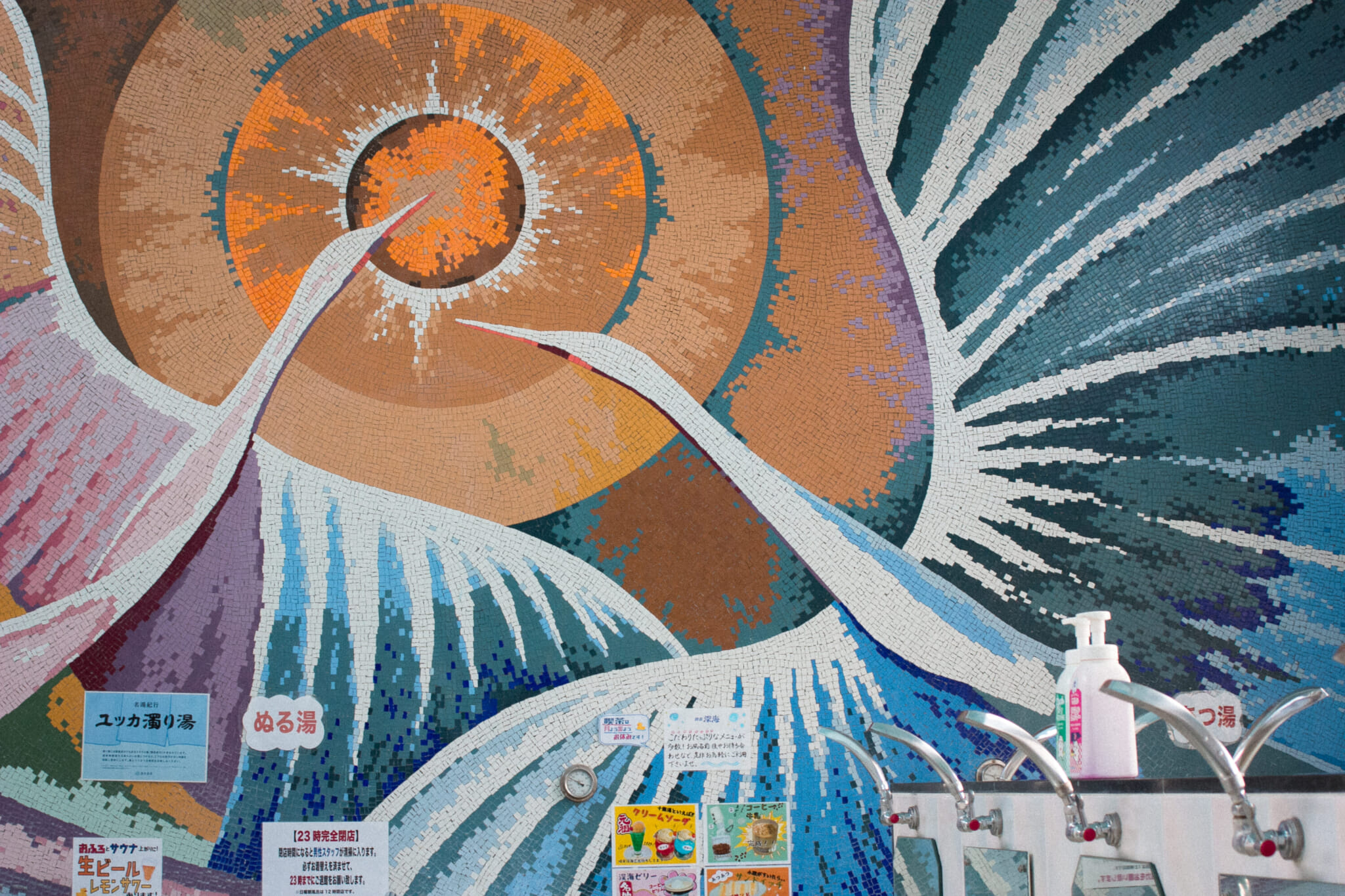
Photo by Kim Kahan
A Tokyo Love Story
On one sweltering day in July, I went to visit Jujo-yu and learn more about the couple behind it. Their daughter — who goes by Katayama and comes down once a month from Osaka to help them out with administration — shows me inside. The four of us sit in the café area, as the elder Yokoyamas speak in turns.
The couple first met at an English conversation class in Ikebukuro over forty years ago. At that point, Muneharu had already taken over his late father’s sento business; his father had passed away suddenly when Muneharu was in his first year of high school. “I didn’t have a choice,” he grumbles good-naturedly.
“You shouldn’t say that!” Katayama laughs in mock horror.
“I had to do it,” he continues, sipping a Pocari Sweat that a staff member brought in for him, concerned about his boss getting dehydrated in the summer heat.
Muneharu grew up around three sento, of which Jujo-yu was one. When his father died, he begrudgingly spun into action. Jujo-yu in its current form was built in 1972, with a coin laundry tacked on, as was common practice back in those days. “The leasing agent advised us to do it, so we didn’t lose the land,” he explains. When it came to renovate the place in 1988, they moved the coin laundry to the opposite side, took out the old bandai reception desk and ended up with a sizable room.
“A waiting room felt like a waste,” Akiko says of the spacious area just behind the reception. “And we wanted somewhere to interact with the customers.” Her husband clarifies: “In those days, most of my time was spent out the back, tending to everything by hand. A lot has changed!” They did the unobvious thing and turned the area into a small cafe, serving coffee that Akiko drips by hand. She went to a special coffee training college to create the best kissaten possible, learning various things about making coffee the Japanese way, from the optimal height of the table, to how to grind and pour each cup. The pair hired a carpenter to custom-build the tables.
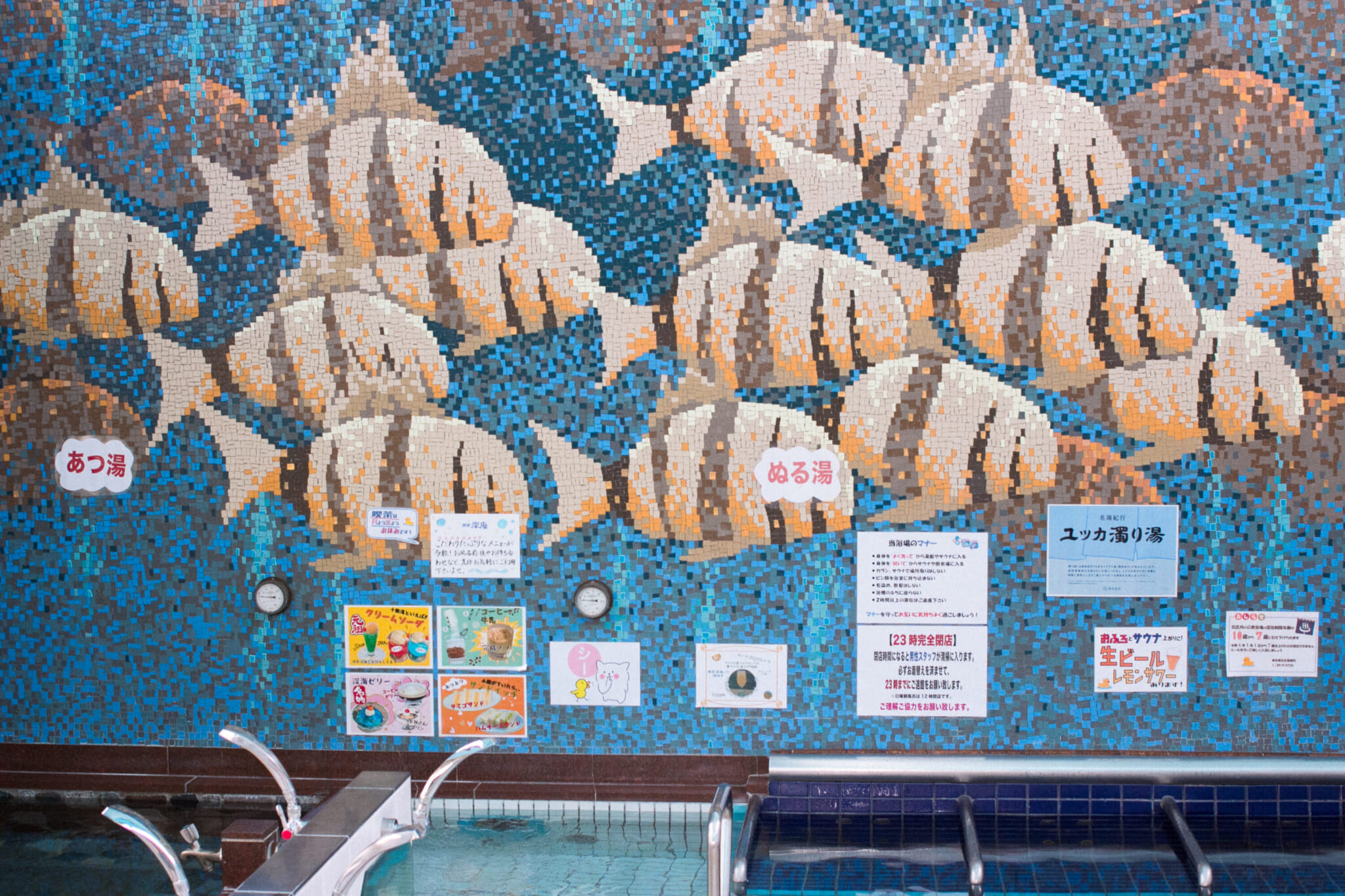
Photo by Kim Kahan
All the Amenities, From Sauna to Jet Baths
During the renovation, they also added a sauna and chillout space inside each bathing area. Both the men’s and women’s sides have saunas relatively large for a small neighborhood sento, and both have cold water baths. As I peer and take pictures of the water gushing into the tub, Katayama shares that they change the water every day. “Not all places do that daily,” I say, surprised. Jujo-yu pumps its water from wells in the ground, so they think it’s important.
Aside from the sauna, chillout space and cold bath, there is an extra-hot water bath, normal temperature one, and a body jet. The mosaic on the wall stands out for its lack of Mount Fuji, a common motif sento walls. In its place is a large mosaic depicting a colorful school of fish. On the men’s side the fish are even larger. The sento tiles are crabs, too, though this wasn’t the first choice. “My dad wanted ships,” Katayama shares, “but they didn’t have them.”
Crowdfunding, and Then Some
The sento is compact, with everything you could want in all temperatures, but come Covid, the establishment hit financial difficulties as the public stayed home, like they’d been instructed. To help save the sento, the Yokoyamas hired a consultant, who suggested that they renovate the kissaten in order to create more of a community hub. With their younger staff and daughter at the helm of the campaign, the sento raised way more than anyone dared hope.
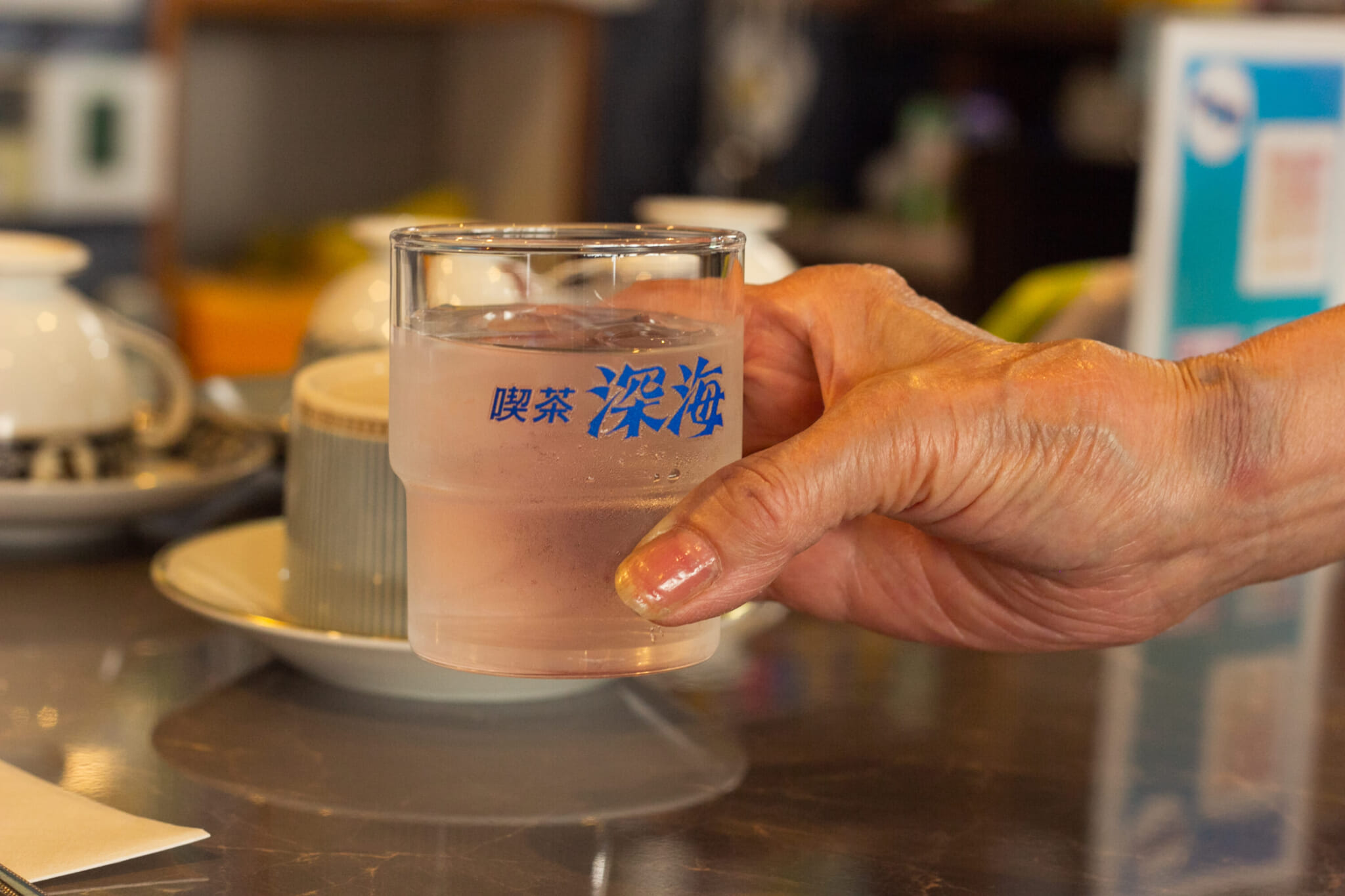
Photo by Kim Kahan
The Quintessential Kissaten
In fact, they raised enough to change the kissaten completely. The white tables and generic chairs, the plain wallpaper and cups: all out. After consulting with their staff, they went for an oceanic theme. They updated the wallpaper in the kissaten as well — it currently stands in blue, with a subtle wave pattern, and changed the name to “Shin-kai” 深海, which means “deep sea.”
They also refreshed the menu, after consulting with the younger staff. The original soda float stayed, and they added a wobbly Japanese purin pudding to the menu, topped with a very Instagram-worthy amarello cherry. Other items included a fluorescent pink soda float — a best-seller, apparently — and bright, ocean-blue jelly, with little orange “fish” inside.
I order black coffee from Akiko and she asks me to choose a cup. There is an array of fancy china on display, including Wedgewood classics, and one mug emblazoned with what appears to be the Beatles, upon closer inspection. With so many options, I chicken out, and ask her to choose one for me instead. She opts for a magenta cup with gold piping, to match the aquamarine jelly.
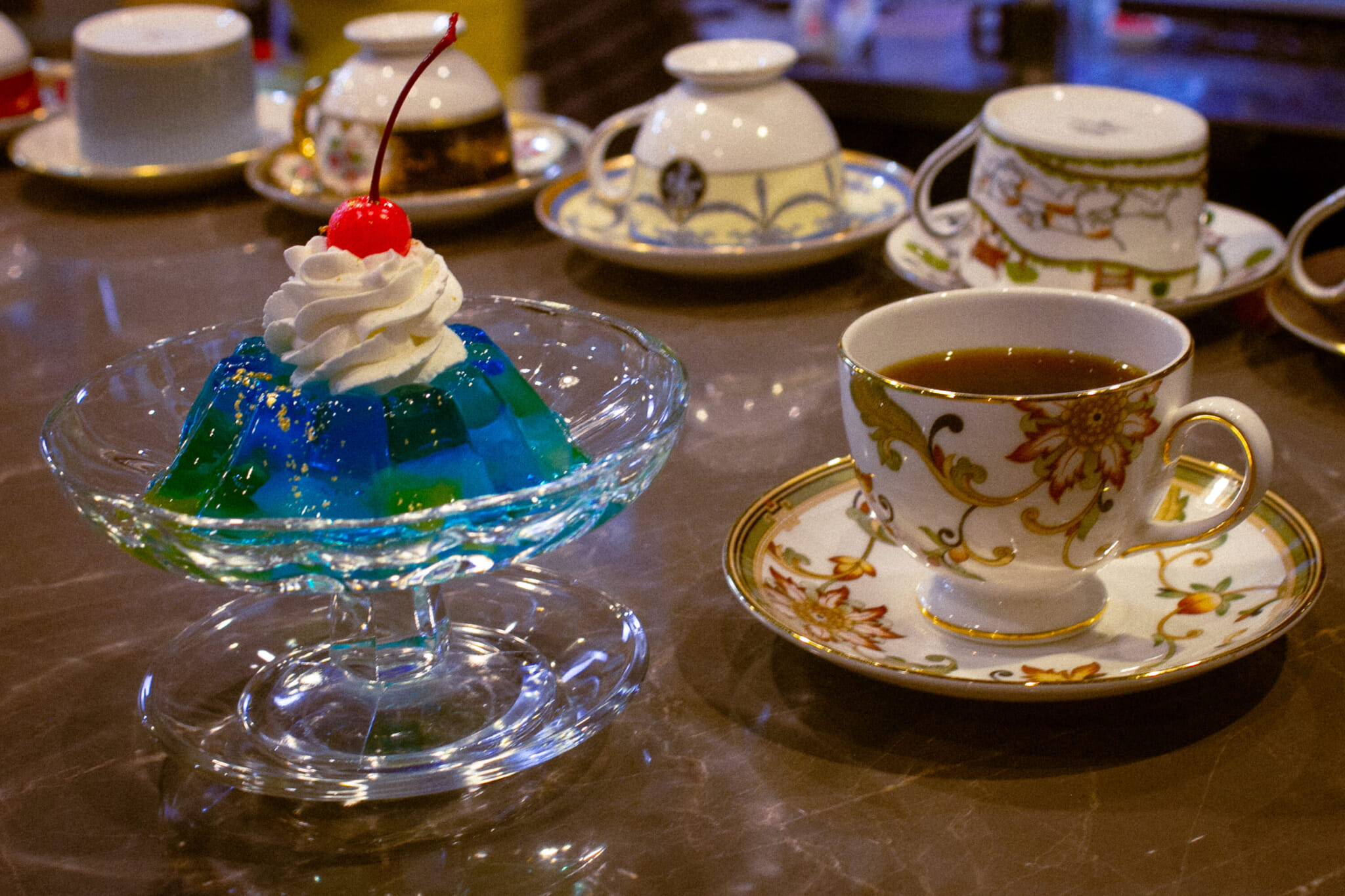
Photo by Kim Kahan
After she serves the coffee, she shares that they didn’t actually buy a single one of the cups. The china is from regular customers, like a bottle keep. “If they bring a cup in, they can use their own special one when they order,” she smiles.
As I drink, a staff member, Yuho Haga, arrives for her shift. The Yokoyamas, Katayama and Haga are all very comfortable with each other, and the atmosphere is congenial and warm. It seems like a lovely place to work. Half-jokingly, I ask Haga what it’s like. “I really enjoy it,” she says. Time for me to switch jobs, perhaps.
Note: Jujo-yu is a cash-only establishment.

